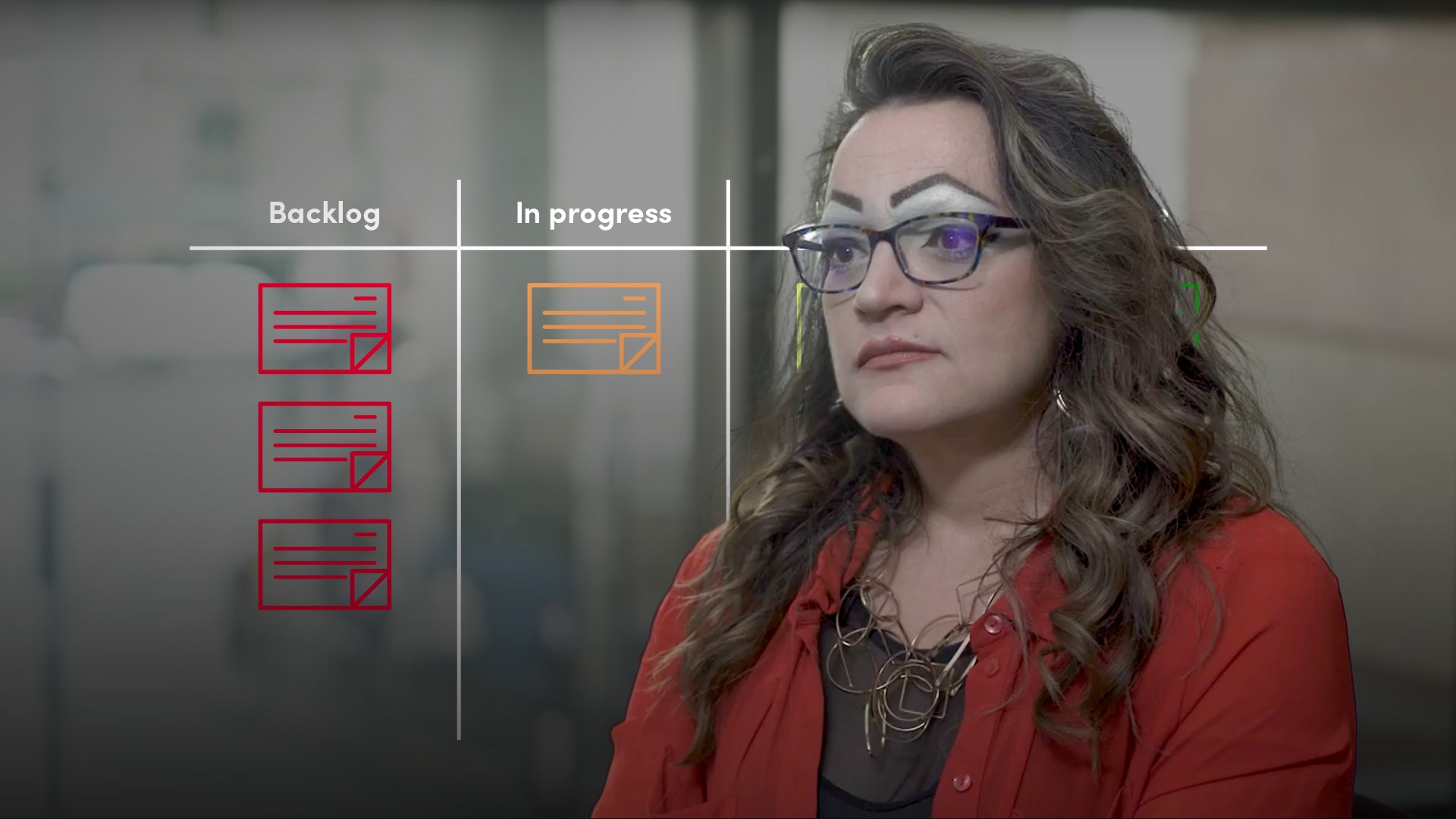
Leadership and the Future of Work

Duena Blomstrom
20 years: Financial services & culture
Technology has made a significant impact on how we work. Duena outlines how demands for faster and better execution of services have pushed the development of new technologies in the workforce, and how companies are adapting to this change.
Technology has made a significant impact on how we work. Duena outlines how demands for faster and better execution of services have pushed the development of new technologies in the workforce, and how companies are adapting to this change.
Subscribe to watch
Access this and all of the content on our platform by signing up for a 7-day free trial.

Leadership and the Future of Work
8 mins 23 secs
Key learning objectives:
Describe the skills people should adopt to compete with new technology
Identify the three potential areas of change in the workplace
Define the terms Agile and DevOps
Overview:
There is a tremendous gap between the speed of technology and the way organisations are structured today. The three major areas of change in the workplace will be location, people, and methodology. With technology taking on new roles, people will need to invest in new skills.
Subscribe to watch
Access this and all of the content on our platform by signing up for a 7-day free trial.
What are three areas that may change in the workplace?
- Location
- People
- Methodology
How may the location of work change in the future?
As technology advances, and new ways of employing it to communicate and collaborate emerge, the need for co-location diminishes. There are more geographically distributed teams that work together better than those who share an office.
Terms such as “digital nomads” and “gig economy” refer to the way in which people are able to perform knowledge-based work in new locations.
Which skills may become more attractive in a workforce where people are working alongside machines and AI technology?
Technical knowledge, as well as all other traditional “hard skills”, can be replicated by chatbots. In order to remain competitive, individuals should focus on these skills:- Empathy
- Flexibility to apply new lenses and change courses
- Agility of the mind and of the process
- Kindness
- Intuition
- Emotional intelligence
- Passion
What current demands have influenced the need to change the methodology of the average workplace?
When it comes to the methodology, the “how” we do work in the future, one theme that has emerged is that technology demands a faster and better modality of delivering projects than the existing waterfall-based methods.
All types of projects being managed so far have been constructed in a sequential approach of plan and design, define requirements, create deliverables, test and deliver. This approach is sluggish because it is too slow to serve increasing expectations from the consumers.
How can the methodology of the workplace be made more efficient?
Some new methods allow speed and flexibility as tasks are not performed sequentially but collaboratively and simultaneously with the end client at the forefront of any action.What is Agile and DevOps?
- Agile - Agile is arguably either a description of a set of practices and processes or a set of values that guide the way we run a project. The Agile Manifesto was written nearly 20 years ago by visionary software developers.
- DevOps - DevOps is a term included within the Agile methodology. It is an umbrella term describing a vision of how automation can redefine the organisation through development and testing, and other operational functions.
What are the values stated in the Agile Manifesto?
- Individuals and interactions over processes and tools AKA “People First”
- Working software over comprehensive documentation AKA “Making things”
- Customer collaboration over contract negotiation AKA “Empathy and Purpose”
- Responding to change over following a plan AKA “Flexibility and Acuity”
Subscribe to watch
Access this and all of the content on our platform by signing up for a 7-day free trial.

Duena Blomstrom
There are no available Videos from "Duena Blomstrom"



























